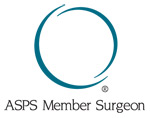Consultation and Preparing for Surgery
During your consultation be prepared to discuss:
- Your surgical goals
- Medical conditions, drug allergies, and medical treatments
- Current medications, vitamins, herbal supplements, alcohol, tobacco, and drug use
- Previous surgeries
Your surgeon will also:
- Evaluate your general health status and any pre-existing health conditions or risk factors
- Discuss your facelift options
- Examine and measure your face
- Take photographs
- Recommend a course of treatment
- Discuss likely outcomes of a facelift and any risks or potential complications
- Discuss the type of anesthesia that will be used
Prior to surgery, you may be asked to:
- Get lab testing or a medical evaluation
- Take certain medications or adjust your current medications
- Stop smoking
- Avoid taking aspirin, anti-inflammatory drugs, and herbal supplements as they can increase bleeding
Special instructions you receive will cover:
- What to do on the night before and morning of surgery
- The use of anesthesia during your facelift
- Post-operative care and follow-up
A facelift may be performed in an accredited office-based surgical facility, licensed ambulatory surgical center, or a hospital. Be sure to arrange for someone to drive you to and from surgery and to stay with you for at least the first night following surgery.
Be sure to ask your plastic surgeon questions. It's very important to understand all aspects of your facelift. It's natural to feel some anxiety, whether it's excitement for your anticipated new look or a bit of preoperative stress. Don't be shy about discussing these feelings with your plastic surgeon.

